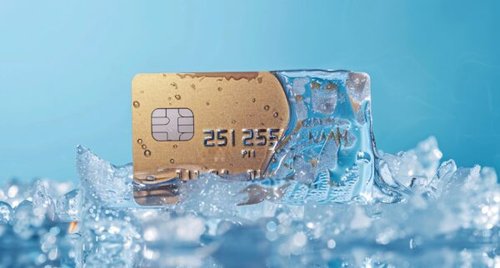While imperfect, credit scores play a key role in our finances. This is particularly the case when selecting a new credit card for your wallet. You may even ask yourself, “What credit score do I need for a credit card?” and believe your score must be perfect before you apply. That’s not the case.
Depending on your credit score there are typically various options for your next card. Although there’s no exact score communicated by most banks, ranges are available that provide a good idea of approval success.
What is a credit score?
A credit score is a number that reflects a certain level of financial health. According to the Federal Trade Commission, a credit score “estimates how likely you are to repay a loan and make the payments on time.” In short, the score predicts your creditworthiness. Issuing banks seriously consider your score when analyzing a new credit application.
FICO and VantageScore are the two dominant credit scoring models used by lenders. It’s essential to know where you stand with at least one of them before applying for a credit card. Both companies rank Americans with scores of 300 to 850.
FICO ranges:
Poor: 579 and below
Fair: 580 to 669
Good: 670 to 739
Very good: 740 to 799
Exceptional: 800+
VantageScore ranges:
Very poor: 499 and below
Poor: 500 to 600
Fair: 601 to 660
Good: 661 to 780
Excellent: 781+
Numerous factors impact a credit score. FICO considers five components, and those are:
- Payment history = 35%
- Amounts owed = 30%
- Length of credit history = 15%
- New credit = 10%
- Credit mix = 10%
VantageScore takes six items into consideration when computing your score. Those are:
- Payment history = 40%
- Length of credit history = 21%
- Credit utilization = 20%
- Total balances = 11%
- New credit = 5%
- Available credit = 3%
Credit card score requirements vary, but it’s possible to get a new card within a majority of the ranges.
What credit score is needed for a credit card?
It’s important to know the minimum credit score to get a credit card before applying. Unfortunately, there’s no public industry standard on the exact score required to get a new credit card. However, the higher the score, the more likely your application will be approved.
Generally speaking, a minimum FICO score of 670 or VantageScore of 660 will qualify you for many credit cards. If you want a rewards credit card, expect to need a score of over 700 to make you eligible for most options. If you want to qualify for the best credit cards, you will likely need a minimum score of 740; however, other considerations may also be considered.
Credit card issuers view better scores as posing less risk. Thankfully, there are ways to boost your credit score if you want to get a better credit card.
Strategies to improve your credit score
A credit score isn’t a static number. There are ways to improve a score, which are particularly important to know if you’re trying to qualify for the best types of credit cards.
These are the top ways to increase your credit score.
Pay your bills on time: Payment history is the largest component of a credit score. Regularly missing payments can have a ruinous impact on your score. Setting up autopay for your credit cards and other obligations is the best way to avoid missing a payment. Just make sure your bank account has sufficient funds to cover payments.
Pay down your balances: Credit utilization ratio is another significant part of a credit score. Lenders want to see you’re using as little of your available credit as possible. Paying off a card before applying for a new one or eliminating as much of your current indebtedness as possible is wise. It shows banks you’re less of a risk, so it’s a win-win.
Keep your oldest accounts open: Paying off an old card is a remarkable feeling. However, closing the card can be a mistake after repayment. You’re better served by using it once or twice a month and repaying in full, as that communicates healthy use of credit.
Become an authorized user: Being added as an authorized user to the credit card of a family member is an excellent way to increase your credit score. That’s assuming they wisely use credit. If the person does, this is a good way to build or rebuild your credit.
Review your credit report: Erroneous information on a credit report can negatively influence your credit score. You can receive an annual free credit report from all three credit reporting agencies. It’s best to request one if you fear you’ve been the victim of identity theft or may have incorrect information on your report.
How to match your credit score with the right type of credit card
Knowing your goals is essential when considering the credit score for credit cards. Fortunately, there are typically multiple cards for most situations. Understanding which you are most likely to qualify for can increase your chances of success.
Cards for people with little or no credit history
Having poor or no credit history doesn’t necessarily disqualify someone from getting a new credit card. People in this situation typically have several options.
A secured credit card is one such choice. This requires users to make a security deposit, which typically equals their credit limit. And, it may come with several fees and a higher-than-normal interest rate. While not ideal, it’s a good way to build your credit.
Starter credit cards or student cards, depending on the situation, are other top choices for card options. However, if your credit score is under 600, you may not qualify for most choices. In this case, focus on improving your score first.
Cards for people with an average credit history
A credit score of 600 to 670 can open more card options to you. Fees and higher interest rates are possible, but there are more choices. In fact, approval for higher-end cards is possible in some circumstances, albeit with possibly reduced credit limits.
Potential selections include the Capital One Platinum Credit Card, which has no fee and automatically considers a higher credit line within six months, or the Capital One QuicksilverOne Cash Rewards Credit Card which rewards cash back on every purchase. Selecting a card like one of these and displaying good habits is an excellent way to eventually bump yourself to the next level.
Cards for people with a good or excellent credit history
Having good or exceptional credit, 740+ for FICO or 760+ for VantageScore, allows you access to most cards. Cards in this category usually have additional features such as rewards and exclusive perks.
Some cards may not have annual fees but others can carry costly fees. The latter may seem exorbitant, but these cards often include generous perks.
➤ SEE MORE:Best credit cards with an annual fee
Card types range from the Chase Freedom Unlimited(R), which has no annual fee and offers various cash-back tiers, to the Chase Sapphire Reserve(R), which carries a annual_fees annual fee but extends a wealth of perks and reward opportunities.
Having a goal in mind is best when selecting a card to avoid applying for one that isn’t a good fit.
The bottom line
An excellent credit score isn’t necessary to get all credit cards. Even if your score is struggling, it’s possible to successfully apply for a new credit card. Banks often list a range required to qualify. Research your available options to find the best one for you. Don’t overlook perusing the terms and conditions of credit cards to verify the benefits and fees fit with your goals.


